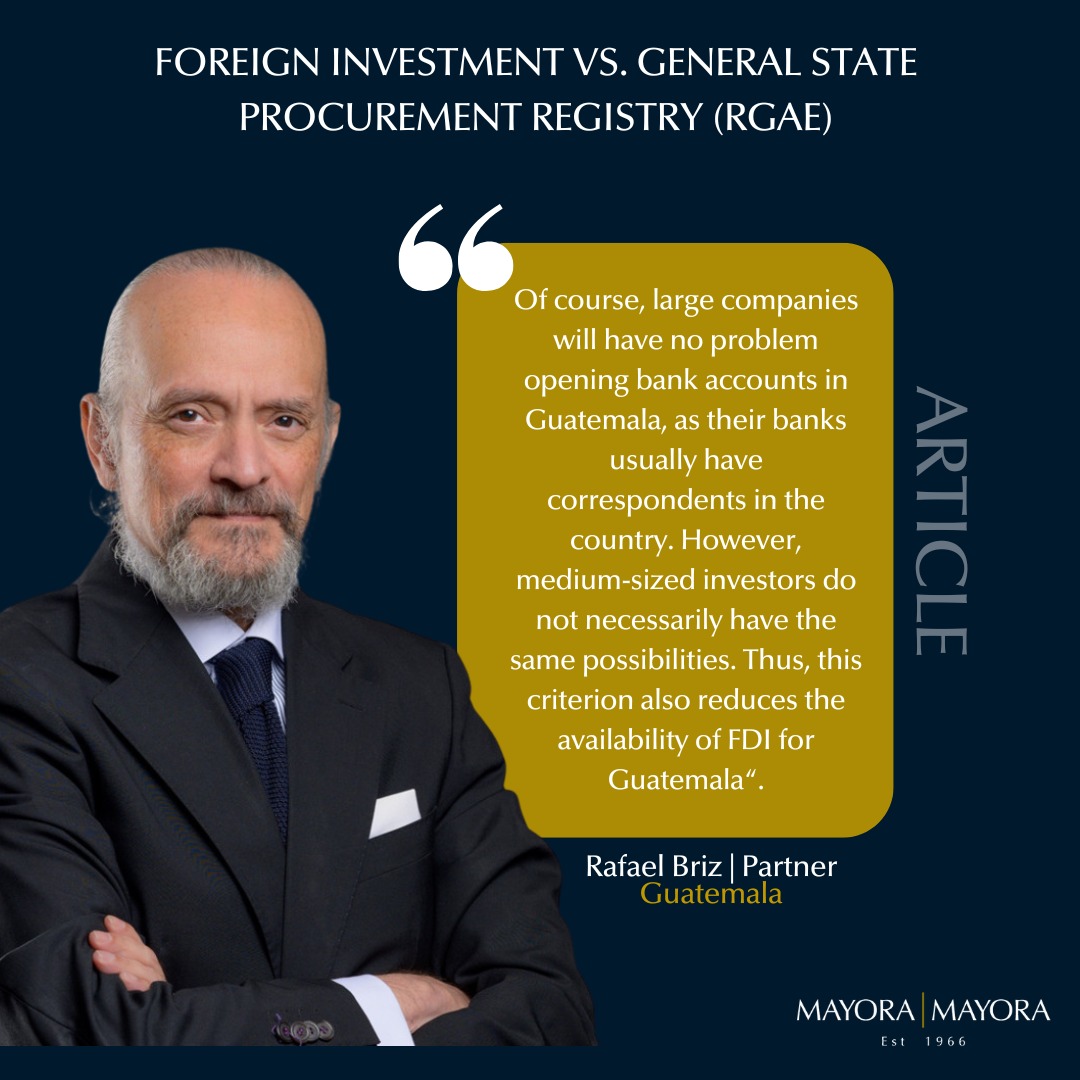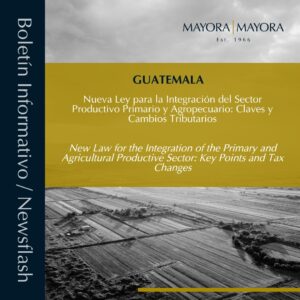| Foreign Direct Investment (FDI) in Guatemala has decreased in recent years, except for some peaks derived from transactions that are not a true reflection of FDI performance in the country. For example, in 2022 FDI (figures in millions) was US1,442, in 2023 it was US1,585 and, as of September 2024, it was US1,175.00. It is not impossible to have at least double those amounts in each period. In 2023, Costa Rica achieved an FDI of US3,921, Honduras US1,077, Nicaragua US2,535 and El Salvador US760. A decade ago, Guatemala was the largest generator of direct FDI, especially during the privatizations in telecommunications and electricity. Attracting FDI requires, among other things, sending a message of legal certainty, respect for the rule of law and facilitating the landing of foreign companies, instead of placing obstacles of red tape or permits in their way. One example is the requirement to be registered with the General State Procurement Registry (RGAE) to be able to bid in public procurement processes. According to Agreement 133-2024 and its amendments, branches of foreign companies wishing to register at RGAE within the first year of their creation or incorporation in Guatemala, must submit, among others, the following documents: (1) Balance sheet and statement of financial position of the parent company; (2) Bank certification that proves ownership of the accounts and banking operations held. The first is correct since, unlike the parent company, no branch will present important figures when recently established in Guatemala, although they will surely be in the process of participating in bids that will strengthen their numbers. However, after the first year, the RGAE asks for the balance sheet and statement of financial position of the branch according to the financial statements and annual income tax return, without considering the parent company, which is a mistake. A branch will need, at least, around three years to have robust financial statements and the necessary economic capacity to participate in certain events on its own. Before that, it is financially impossible to have significant numbers. The consequence will be to receive a certificate from the RGAE to participate in low-level processes (direct purchase). This makes it unattractive to invest in important projects in Guatemala, serving as a disincentive to investors. Personally, I believe RGAE should not make this distinction. Instead, it should always require the financial statements of the parent company together with those of the branch, and the sum of both should be the basis for the processes in which it can participate. This would also accurately reflect the fact that the parent company and the branch are the same legal entity, and the former is liable for the latter, as established in the Commercial Code. As for the banking documents, the RGAE believes they must be from banks authorized to operate in Guatemala, since it cannot verify those issued by foreign banks. This also limits investment in an unnecessary and arbitrary manner. Such practice has no reasonable basis, since any foreign company that establishes itself in Guatemala can attest to operations with its bank of origin, having local banking operations only after some time. It should be emphasized, once again, that the branch and the parent company are one and the same legal entity. Of course, large companies will have no problem opening bank accounts in Guatemala, as their banks usually have correspondents in the country. However, medium-sized investors do not necessarily have the same possibilities. Thus, this criterion also reduces the availability of FDI for Guatemala. For this reason, the Ministry of Public Finance should make substantive and not cosmetic changes to RGAE regulations, making it easier for foreign companies to establish themselves in Guatemala and participate in public bids. FDI generates jobs, wealth and better living conditions, but provisions and criteria such as those indicated are unnecessary obstacles that diminish this potential. Two fundamental changes, which will reduce red tape and encourage FDI, are: (1) That the financial statements to be submitted are always those of the parent company and the branch, regardless of how long the latter has been in Guatemala, and that the qualification is made based on their sum, since they are the same responsible legal entity; (2) That certificates from foreign banks are also accepted, not only from those established in Guatemala. The recent enactment of the Competition Act also provides an opportunity to reflect on measures such as these, since it is generally intended to reduce unnecessary and unreasonable barriers that hinder access to markets, promoting greater competition that causes a greater and better supply of goods and services to the public sector, also generating investment and jobs in the country. If Guatemala wants to return to being a reference in FDI for Central America, we must make changes immediately. |





